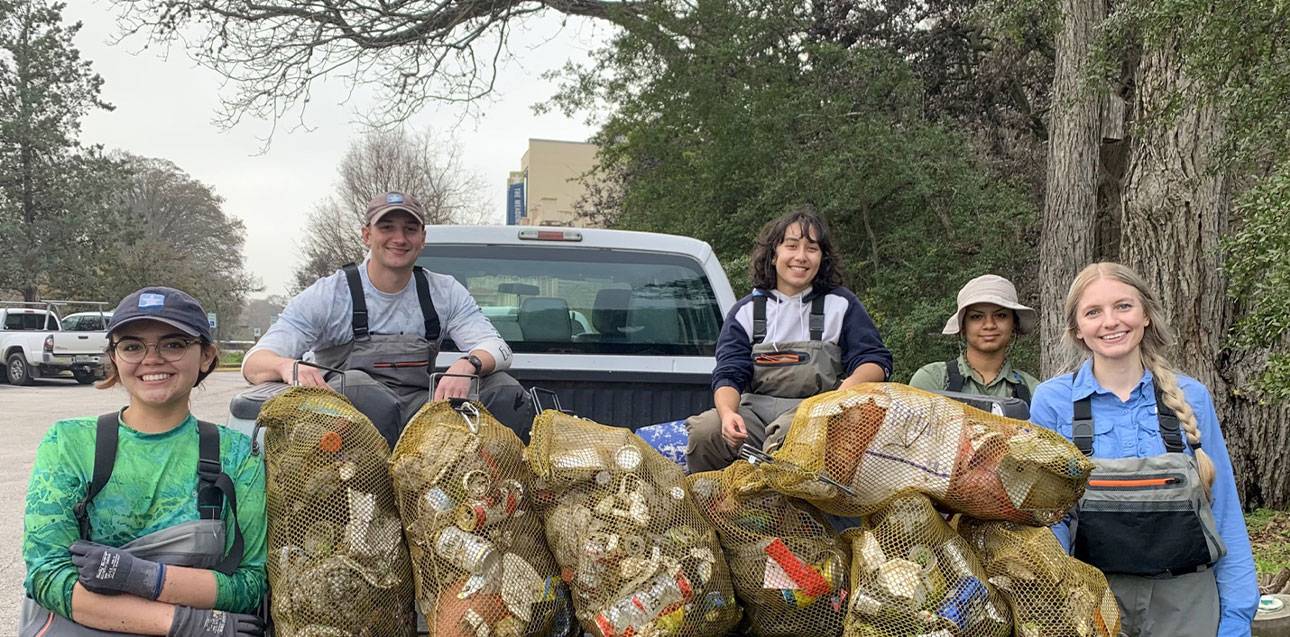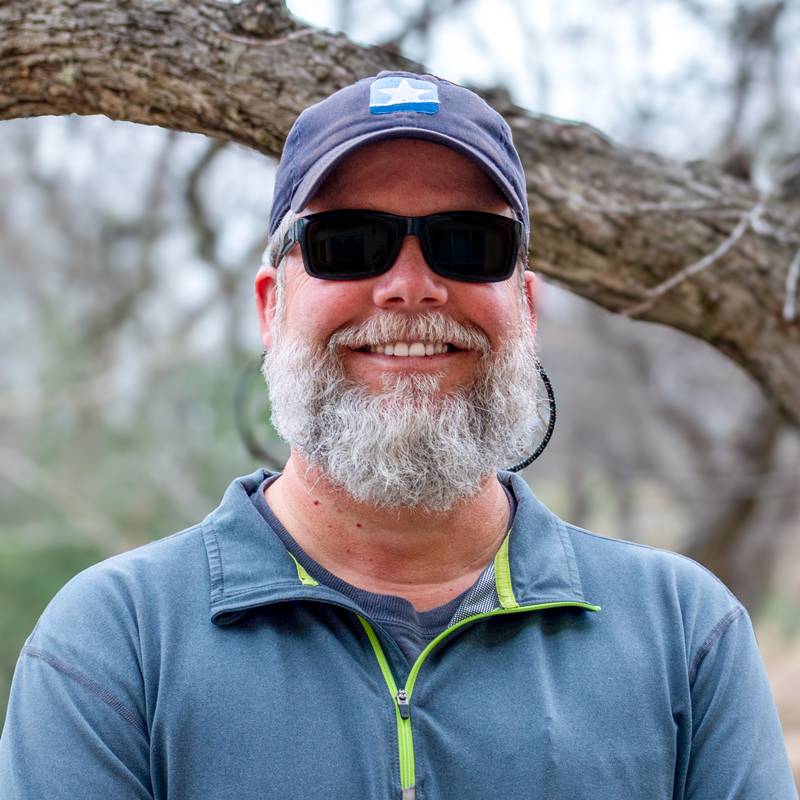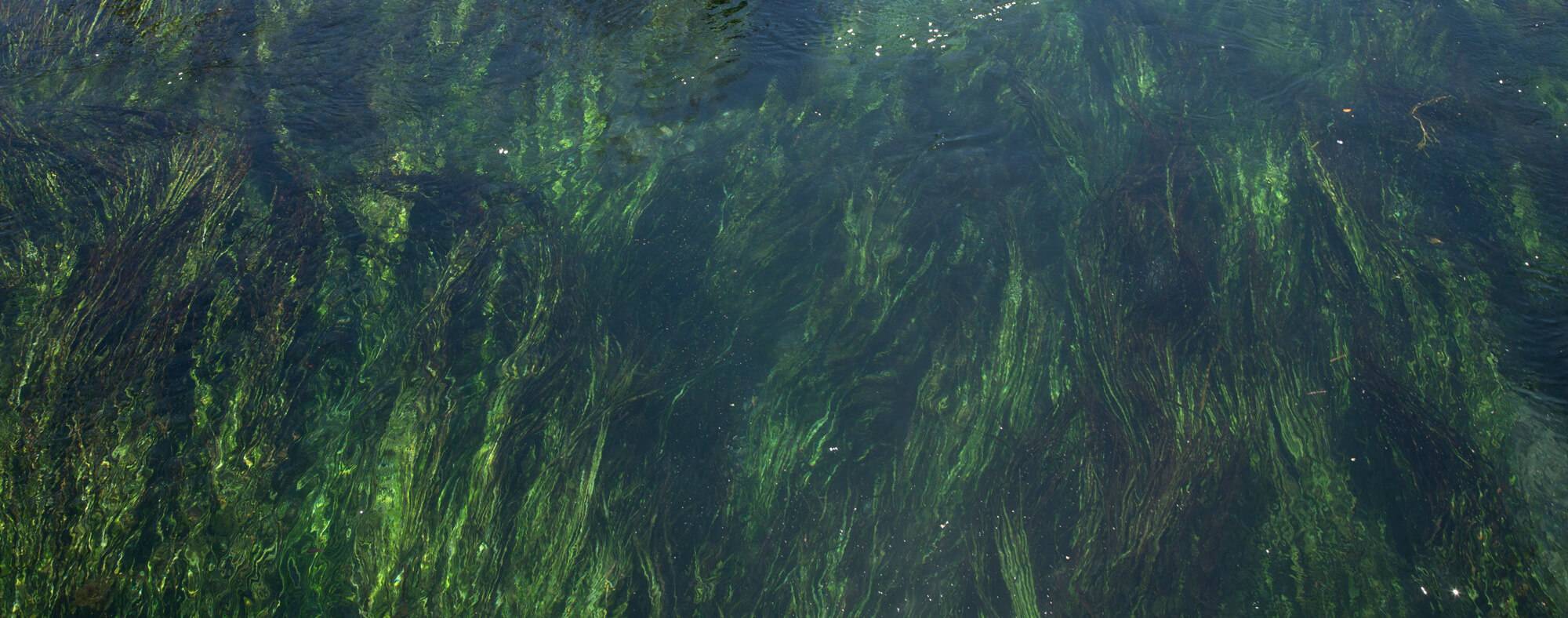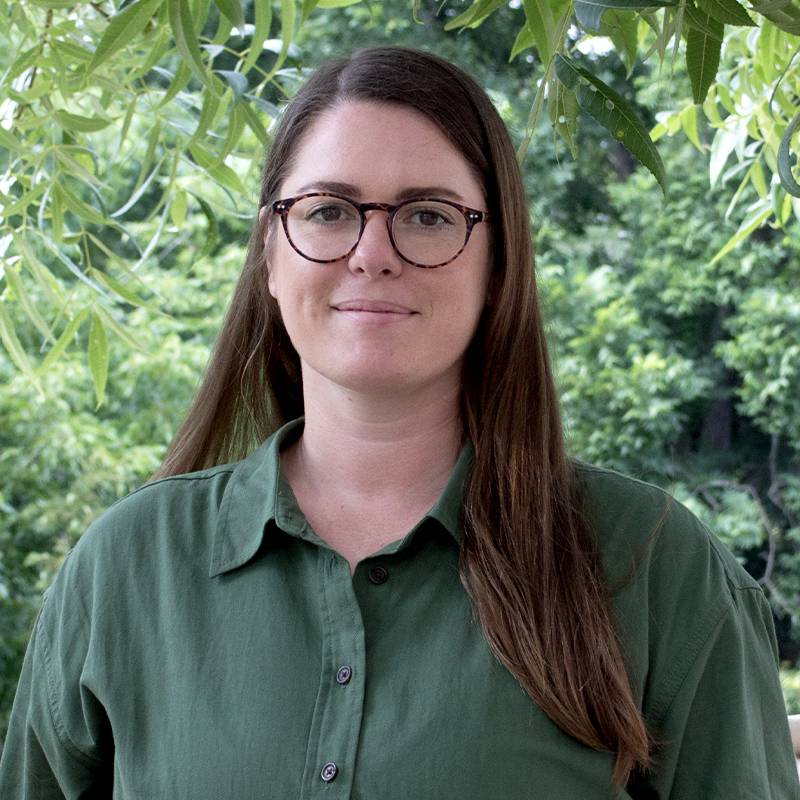Litter Removal in the San Marcos River

Project Summary
The San Marcos River is a popular spot for recreation, attracting countless visitors who enjoy its natural beauty. However, this influx of people also brings an increase in trash, which can harm the river's delicate ecosystem. The Meadows Center’s Ecological Research team is committed to keeping the San Marcos River clean and healthy. Thanks to the generous support from the Lions Club of San Marcos, we carry bags full of litter out of the river every day, focusing on protecting sensitive areas like Texas wild-rice stands.
Our group is dedicated to thorough and effective trash removal. We carefully wade through critical Texas wild-rice stands, ensuring minimal disturbance while removing litter. In Spring Lake, we dive to recover golf balls that have been accumulating for decades, preventing the release of harmful chemicals into the water. In downstream areas, bulky items such as tires and shopping carts accumulate, which has been our target in the past cleanup efforts.
In 2024, we are excited to expand our efforts with funding from the Environmental Fund of Texas. Our plans include specialized projects like golf ball removal, river snorkeling cleanups, and targeting extra-large trash downstream. These projects are vital because litter not only spoils the beauty of the river but also threatens the health of the plants and animals that live there.
Community involvement is at the heart of our mission. We regularly organize volunteer events where people can join us in cleaning up the river by removing trash, invasive vegetation, or both! By volunteering with us, you can help preserve this unique ecosystem and ensure it remains a vibrant and healthy place for future generations. Join us in making a difference for the San Marcos River!
Project Leads

Tom Heard, M.S.
Wildlife & Fisheries Biologist, Habitat Field Crew
(512) 245-3553
th39@txstate.edu
Emily Lorkovic, M.S.
Wildlife & Fisheries Biologist, Habitat Field Crew
(512) 245-3553
e_l328@txstate.edu
Collaborators and Funders
This work would not be possible without support from the Lions Club of San Marcos and the Environmental Fund of Texas.



